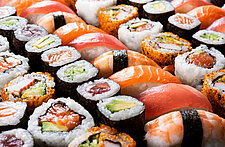In my business of trend forecasting for apparel I quickly realized, early on, there is an interconnectivity that goes well beyond fashion choices of the masses. This interdependence can rise out of social, economic, and generational cues, among other things. This month I will share with you a trend that is poised for eminent future growth based partly on history, some on psychology and heavily on generational characteristics.
I think it is safe to say that we have all been witness to the effects of sale promotions that generally have expiration dates attached, but are often lengthy or time-independent. Many retailers no mater what the product use some form discounted promotion for driving traffic and accelerating sales of their goods. It is in some way built into our consumer DNA that sale means savings and wise decision making. But it also generates emotions like anticipated regret. So now lets move to what I call SALE 2.0 AKA “time limited” promotions or Limited Time Offers.
For more trend insights, CLICK HERE to subscribe to the weekly in-sight newsletter
Studies have shown that placing short time frames or limited editions around products greatly increases the consumers’ sense of scarcity that brings about a perceived threat to consumers’ freedom or individuality. Many of us can remember at least one example of something we either wanted or needed to experience that had a “one time only” or “a limited edition” constraint on it. A concert, a pair of NIKE shoes or a Mc Rib sandwich. They are scattered throughout our lives like great seasoning on a meal. It is here, now, that we are witness to some currents coming together and building momentum. Ultimately becoming a trend in and of itself.

Take for example food trucks and the dramatic increase, not only in their use, but in the unique foods coming out of an uncommon place. We can easily see the repercussions of the Millennials based on their exclusive taste demands, not to mention their pro social and environmental proclivities. Food trucks give us options, but more importantly it is driving (no pun intended) time sensitive motivations and training consumers to plan, schedule, react to the Limited Time offers of the mobile restaurants. A recent Technomic study suggests that half of Millennials and Gen Xers enjoy being the first of their friends to try an LTO menu item. Think about how and what food trucks offer: through a series of tweets and posts, they update their guests/followers on their time and physical location along with the seasonal menu options. This plays heavily on consumer behavior and has paved the way towards a multitude of applications like “Pop Ups”.
CLICK HERE to view Trend Perspectives: Who is Gen Z?
Generally, we see more Pop Ups occurring in the apparel sector, but the method has expanded exponentially into other unique venues like Film, Health and Charity. Food and beverages are quickly seeing the application benefits and are adding this new step as a line item to their business plans. While the original intent of pop up may have been to test/crowd source the product or service, it has indirectly influenced consumer behavior through its’ time sensitive nature and tapped squarely into millennial FOMO characteristic.
Now lets move to yet another star that is aligning and that is “Gen Z”, I wrote about this generation in my last article. Just as a refresher, By 2020 Generation Z’s global estimates are two billion people. They are known for having a short attention span and like the Millennials, their digital habits suggest that they thrive on experiences. Both are interested in trying new things, especially if it’s only available for a short time.

The key to capturing Gen Z’s attention is through a quick, authentic, eye catching vernacular of colorful symbols and real narratives. Add to these characteristics a time sensitive expiration date, like that of “Snap Chat” and you have the perfect conditions for a trend.
So as you can see consumer behavior and two powerful generations are clearly pointing to a trend and new business standard; offering exclusivity, limited editions and time sensitive offers. However, the economic “law of diminishing returns” still exists and consideration to control ubiquitous use is highly advised.
CLICK HERE to view Trend Perspectives: Entertainment is King




